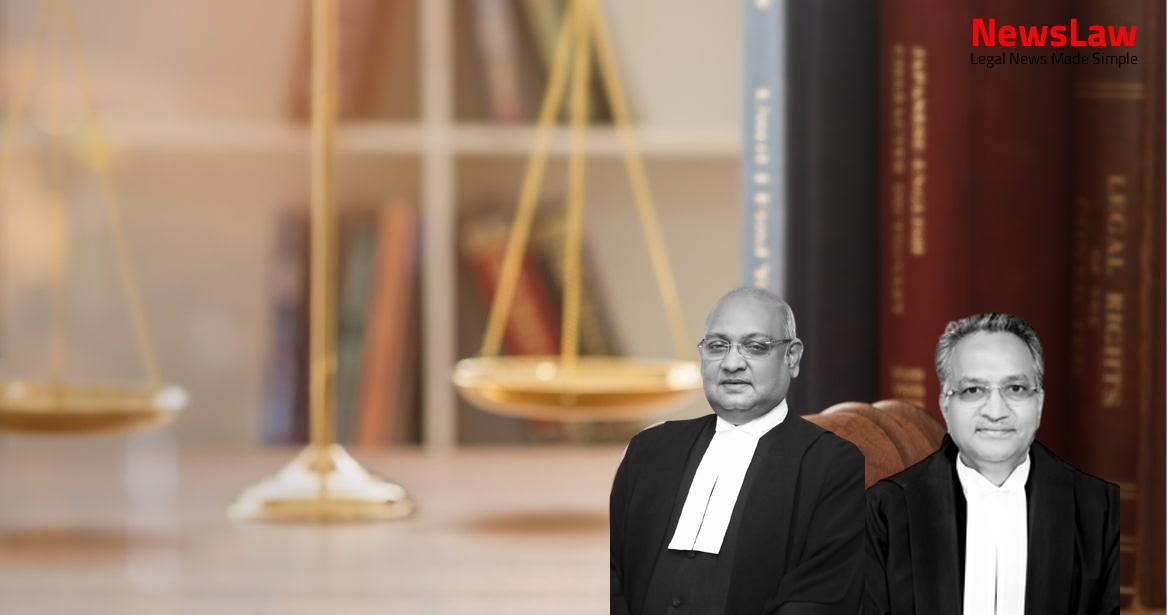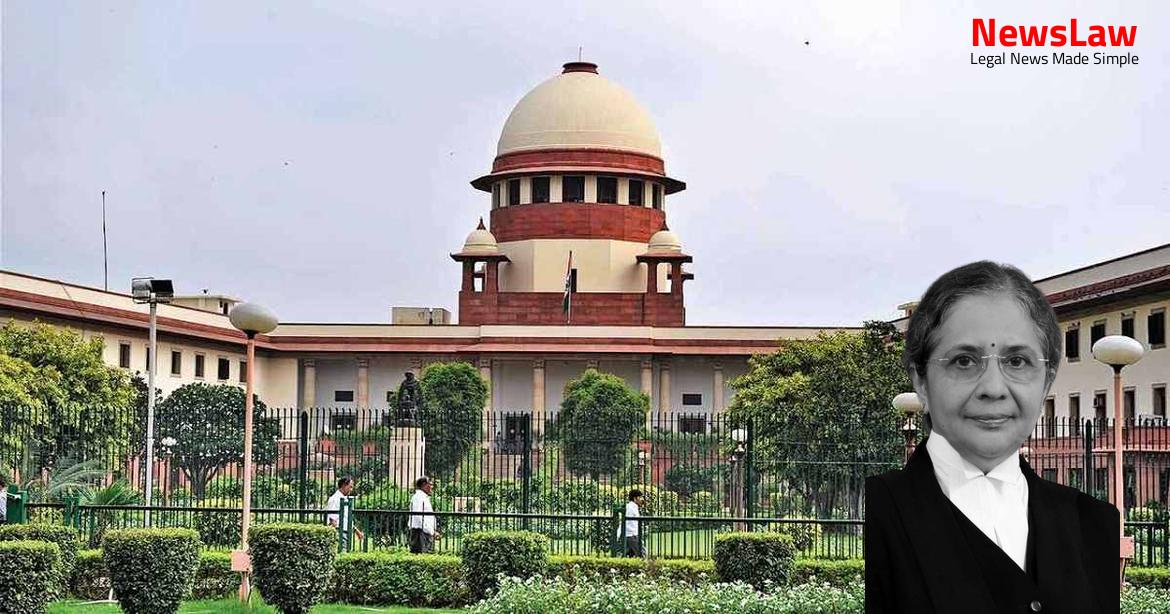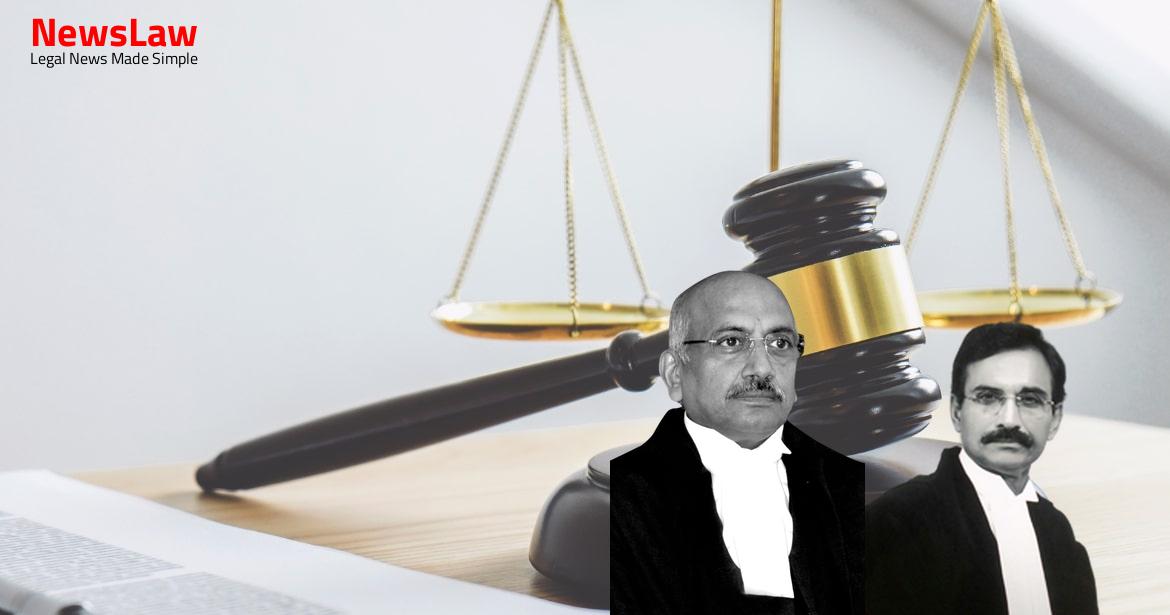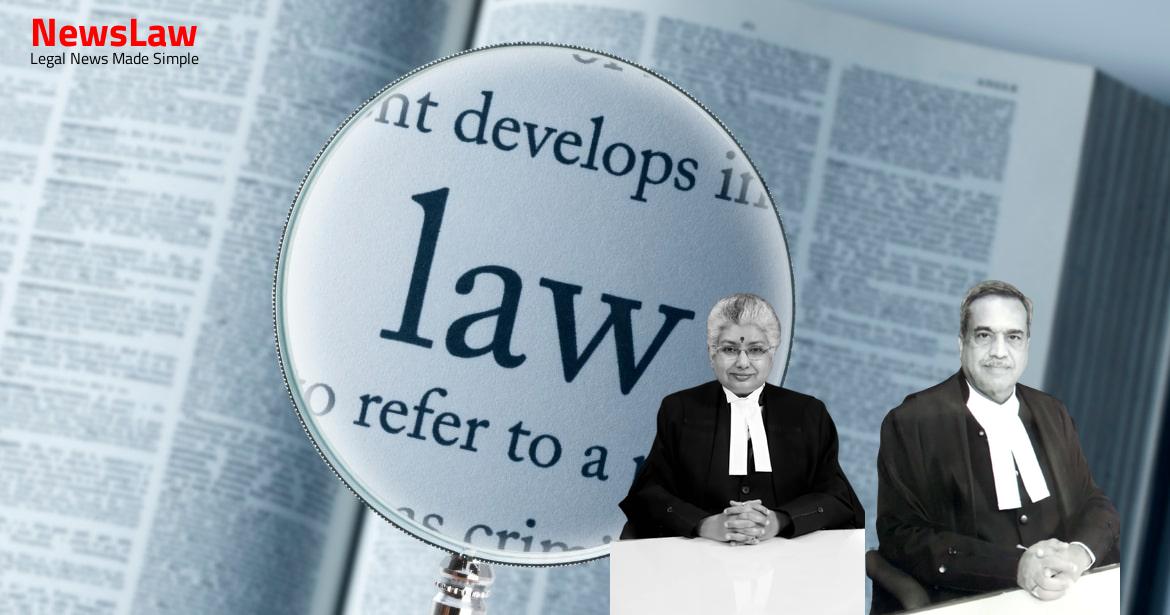Explore the landmark Supreme Court ruling reshaping pre-deposit norms in tax disputes, as seen in the case of Ideal Detonators Pvt. Ltd. against the Commercial Tax Officer. This judgment delves into crucial considerations for tax compliance and appeal processes. #SupremeCourt #LegalCase #PreDeposit
Facts
- Appellant filed representation for tax credit certificate and adjustment against taxes payable.
- Appellant pointed out earlier order of Tribunal not implemented yet.
- Appellate Authority called for balance pre-deposit payment despite tax credit certificates produced.
- Appellate Deputy Commissioner requested for short payment of pre-deposit, appellant mentioned input tax credit of Rs. 1080,01,63,420/-.
- Appeal rejected for non-payment of pre-deposit, appellant filed representation again.
- Appeal filed against assessment order, Commercial Tax Officer passed initial assessment order, appeal rejected due to non-payment of tax amount.
- Second appeal filed before Sales Tax Appellate Tribunal, order set aside for not hearing the appellant.
- Commercial Tax Officer issued proceedings recognizing excess tax credit of Rs. 66,46,284/- for adjustment or refund.
- Certificate issued by Commercial Tax Officer for input tax credit of Rs. 92,01,606/-, appellant eligible for refund or adjustment.
- In remanded proceedings, appellant submitted evidence for adjustment of excess payment as certified by assessing authority.
- Writ petition dismissed by High Court, appellant submitted new representation to assessing authority.
- Appellant relies on tax credit carry forward certificate of Rs. 10,63,683/- issued by the authority.
- The Appellate Deputy Commissioner rejected the appeal on 31 December, 2013, citing non-payment of pre-deposit amount.
- The rejection was based on the judgment of Ankamma Trading Company.
- The appellant filed writ petition No.847 of 2013 challenging this decision.
- The High Court rejected the writ petition No.837 of 2014, citing non-payment of the required 12.5% disputed tax as per Section 31 of AP VAT Act, 2005.
Also Read: Balancing Justice: Case Summary of C.P. No. 16/2017
Arguments
- The appellant- petitioner raised a specific plea before the High Court regarding the failure of the first Appellate Authority to analyze an aspect as expected.
- The plea was in reference to an earlier order passed by the second Appellate Authority.
- The appellant’s argument was recorded in the High Court’s judgment, emphasizing cases like Ideal Detonators Pvt. Ltd. v. Commercial Tax Officer and Fytochem Formulations Ltd. v. Commercial Tax Officer.
- The appellant’s counsel cited the need for the Commercial Tax Officer to decide on the representation submitted by the petitioner and issue a certificate for adjustment towards pre-deposit.
- Despite the appellant’s specific plea, the High Court did not address this argument in the judgment.
Also Read: Interpreting Section 14 of the 2002 Act: Equivalence of CJM and CMM
Analysis
- The High Court should not have disregarded previous decisions as non-binding precedent.
- The decision in M/s. Innovatives Systems impliedly overruled the principle in Ankamma Trading Company.
- The proviso requires proof of payment of tax dues as a prerequisite for appeal consideration.
- Analogous hearing of appeals with Civil Appeal No.7574/2014 was mentioned repeatedly.
- The decision of M/s. Lakshmi Rattan Engineering Works Ltd. does not contradict the appellant’s position.
- The significance of depositing tax dues before appeal consideration by the Appellate Authority was emphasized.
- Specific references to sections of APGST Act, 1957 and AP VAT Act, 2005 were made to support the argument.
- The importance of producing proof of payment of tax dues during the consideration of appeal was reiterated.
- The rejection of appellant’s appeal by the Appellate Authority due to non-compliance with payment proof was highlighted.
- The concept of ‘admitting’ an appeal was examined in detail in relation to the proviso.
- Provisions pertaining to Andhra Pradesh and Telangana were interpreted in the case of Ankamma Trading Company.
- The High Court in Ankamma Trading Company noted the lack of specific time mentioned for producing proof of payment, but still required it to be done by the first date of the appeal’s hearing.
- A distinction was made between filing an appeal and entertaining/admitting it on its merits.
- The High Court dismissed writ petitions despite being pointed out that the decision in Ankamma Trading Company had been impliedly overruled by a Supreme Court decision.
- The High Court had relied on a previous decision to dismiss a writ petition, but the Supreme Court allowed the appeal in that case by setting aside the High Court’s decision.
- The mandatory nature of compliance with the second proviso in the provision was emphasized, failure of which would lead to the Appellate Authority not admitting the appeal on merits.
- Doctrine of merger was discussed in relation to when the appellate jurisdiction of the Court is open after a special leave petition has been granted.
- The expression ‘not to be admitted’ was proposed to be read as ‘not to be entertained’ in case of failure to produce proof of payment as per the second proviso.
- A comparison was drawn to a decision regarding the interpretation and application of Section 18 of the Securitisation and Reconstruction of Financial Assets and Enforcement of Securities Interest Act, 2002.
- The absolute power to entertain an appeal under a specific section of the Act was highlighted.
- The case of IOT Infrastructure & Energy Services Ltd. and Ranisati Trading Co. were referenced in relation to the issue at hand.
- An appeal shall not be admitted by the appellate authority unless the dealer produces proof of payment of the tax admitted to be due.
- The dealer must also provide proof of payment of 12.5% of the difference between the tax assessed and the tax admitted by the appellant.
- The appeal must be accompanied by satisfactory proof of payment of the required amounts to be admitted by the appellate authority.
- Refund of the difference of tax assessed and tax admitted by the appellant must be made within 60 days of the order, with 18% simple interest if not refunded within the stipulated time.
- The Court considered a similar stipulation in Section 51 of the Tamil Nadu VAT Act, 2006.
- The second proviso in Section 51 of the Act uses the expression ‘no appeal shall be entertained’.
- This is different from the expression used in the provisions under consideration where it states ‘the appeal so preferred shall not be admitted’.
- The Appellate Authority must consider every appeal for admission on merits or for condonation of delay within thirty days of filing.
- The High Court failed to consider challenges to original assessment orders in previous cases.
- High Court rejected writ petitions solely based on failure to comply with deposit condition, without considering the petition on its merits.
- No payment towards the specified amount was required by the appellant, as per the argument supported by decisions of the Court.
- There’s a risk of litigants exploiting the interpretation to delay consideration of appeals before the Appellate Authority.
Also Read: Judgment by Supreme Court of India in M/s. Bhilwara Processors Ltd. vs. Department of Central Excise
Decision
- The impugned judgment of the High Court is set aside
- Parties are relegate before the High Court to reconsider the Writ Petition
- All pending applications are disposed of
- No costs are awarded
- Appeals are restored to the file of the Appellate Authority
- Leave is granted
- Writ Petition is restored to the High Court for fresh consideration
- All questions and contentions are left open to be decided by the High Court
- Appeal is disposed of with no order as to costs
- All contentions available to both sides in the remanded writ petition are left open for consideration
- Appeal is allowed
- Appeals in view must fail and are dismissed
- Appellant cannot agitate a question already decided in a previous appeal
- Impugned judgment of the High Court is set aside
- Writ petition is restored to the High Court for fresh consideration
- Appeal is tagged with other connected matters
- Impugned judgment of the High Court is set aside
- Writ petition is allowed by setting aside the order of the Appellate Authority
- Appellant had deposited specified tax dues before the first date of consideration of the appeal
- Appeal is delinked to be heard separately on the challenge to the original order passed by the first Appellate Authority
- All pending applications are disposed of
Case Title: M/S. S.E. GRAPHITES PRIVATE LIMITED Vs. STATE OF TELANGANA
Case Number: C.A. No.-007574-007574 / 2014



